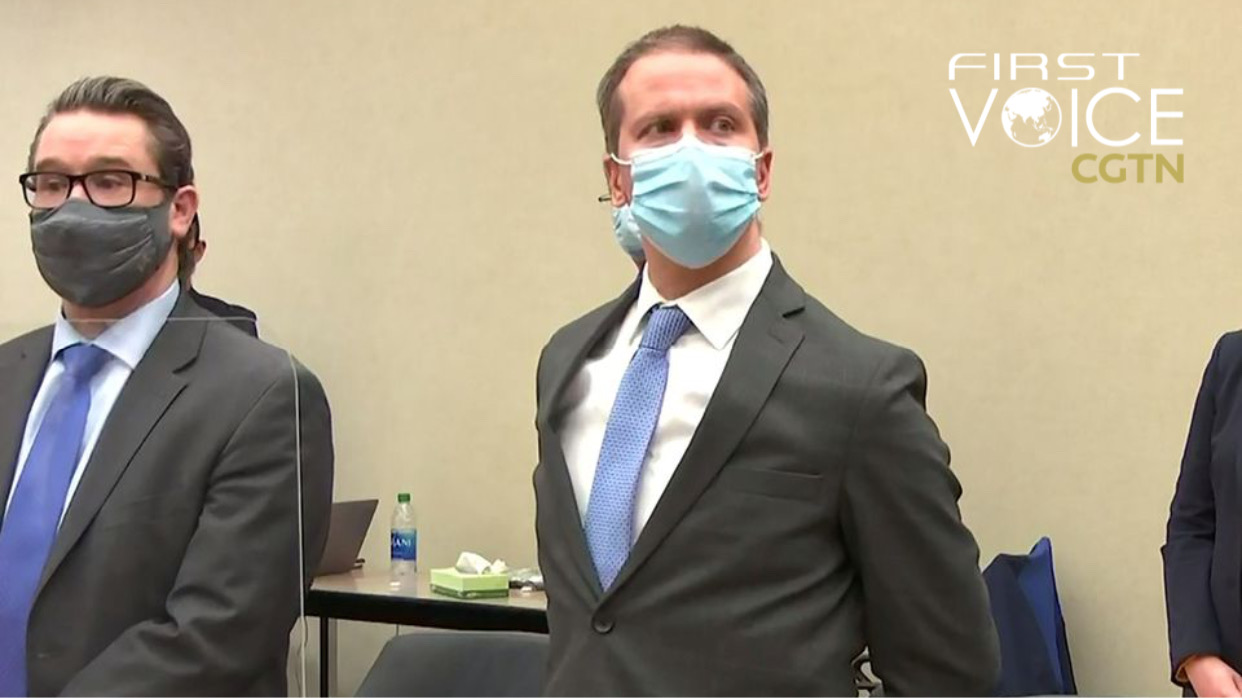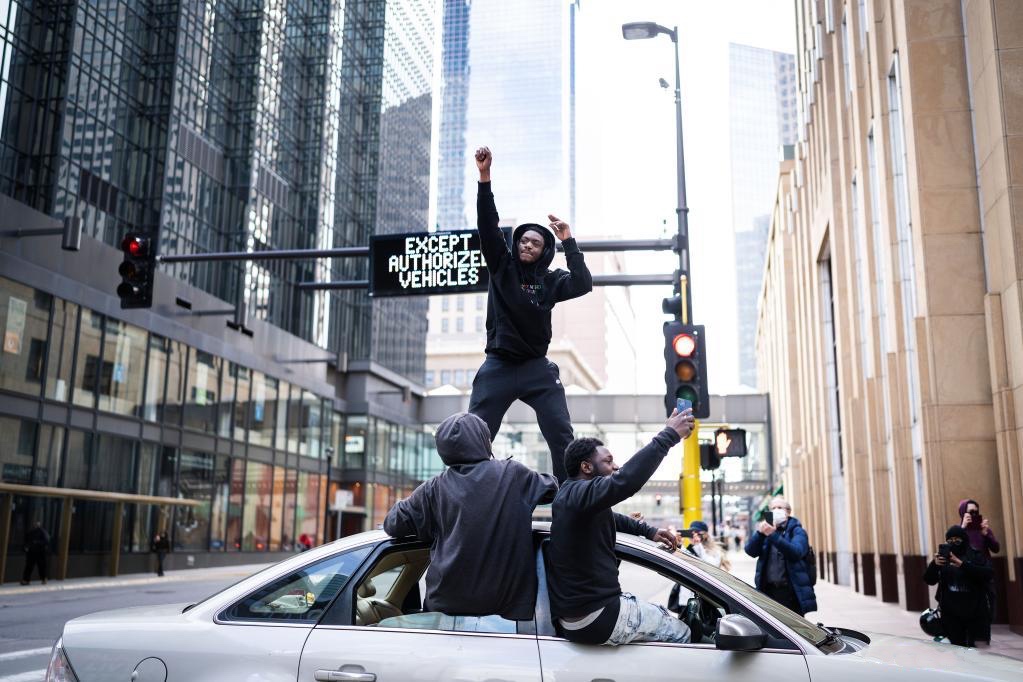
Editor's note: CGTN's First Voice provides instant commentary on breaking stories. The daily column clarifies emerging issues and better defines the news agenda, offering a Chinese perspective on the latest global events.
Americans, on a knife-edge over the trial of former police officer Derek Chauvin, breathed a sigh of relief when he was convicted of all charges.
Even though the callous killing of George Floyd over an excruciating 9 minutes and 29 seconds was caught on video for the world to see, there was still serious doubt about whether the white police officer would be convicted. After all, Black men are regularly mistreated by police, and almost never get justice in the United States.
This rare case of justice was hailed as a landmark, with President Joe Biden saying, "We have a chance to change the trajectory in this country."
However, it's a sad fact that Black people still can't breathe easy after Chauvin's conviction. Needless killings of Black people by police continue. Real change for the Black community is unlikely to come until Americans overcome a peculiar blind spot when it comes to human rights – economic and systemic justice.
This blind spot is not accidental. It is baked into the American system.
It is no coincidence that Martin Luther King Jr. was fighting for economic rights for Black people denied by the U.S. system when he was assassinated in Atlanta in 1968. This important part of King's legacy is never mentioned by U.S. leaders when they praise him.
In the U.S., politicians make much of political human rights such as freedom of religion and freedom of assembly. But without fundamental economic human rights, everything else is meaningless. You need to be able to take care of your family before any other need.
The United Nations' Universal Declaration of Human Rights states, "Everyone has the right to a standard of living adequate for the health and well-being of himself and of his family, including food, clothing, housing and medical care and necessary social services, and the right to security in the event of unemployment." It also declares everyone should have the right to education, and equal access to public service.
George Floyd and his ancestors were systemically denied all of these things.
He, like generations of Black people across the United States, grew up in a segregated neighborhood. In these places, basic services like good schools and hospitals or even convenient access to public transportation are denied – as a matter of government planning and public policy.

People celebrate outside the Hennepin County Government Center reacting to the trial verdict that former Minneapolis police officer Derek Chauvin was found guilty on all counts in Minneapolis, Minnesota, April 20, 2021. /Xinhua
People celebrate outside the Hennepin County Government Center reacting to the trial verdict that former Minneapolis police officer Derek Chauvin was found guilty on all counts in Minneapolis, Minnesota, April 20, 2021. /Xinhua
In the U.S., there is a strong myth of the self-made man or woman. But what chances do people have when the very structure of society is bent in order to maintain the current economic and social order? And when zoning laws, mortgage policies and even transportation routes are designed to keep them in an impoverished neighborhood?
According to Floyd's aunt, his great-great grandfather was born a slave in North Carolina, but managed to attain 500 acres of land as a young man. However, he lost it all when White farmers seized the land, using legally dubious methods. Floyd's grandparents were sharecroppers, and were repeatedly cheated out of their pay and forced out of the shacks they rented with their labor.
Floyd graduated from the local underperforming high school, but found himself unprepared academically when he went to college, and dropped out. He became embroiled in a series of petty crimes that saw him cycle in and out of prison, harming his prospects to get work.
His life in miniature represents the systemic forces aligned against Black people in the United States. The problem is much greater than simply making improvements in training police.
The problem is that police are entrusted with enforcing an unjust social order that leaves entire groups of people permanently disadvantaged.
Martin Luther King Jr. recognized that overcoming the systemic barriers created by poverty is essential to giving full rights to Black people and people of all races in the United States.
The economic aspect of Floyd's death is not hard to miss. He had lost his job due to the COVID-19 outbreak, and died while being arrested for trying to pass a fake $20 bill at a convenience store.
It is a unique American blind spot to criticize other nations for violating human rights while systemically denying the most basic of rights to huge swathes of its own population.
When Chauvin was convicted of all charges, American people burst into tears for this landmark moment. But it's still too early to celebrate. As long as the unjust social order is still in place, the U.S. will only witness more tragedies of unnecessary police violence – even after Chauvin's conviction.
The current focus on policing is a distraction from the real issue – systemic barriers to economic and social justice.
(If you want to contribute and have specific expertise, please contact us at opinions@cgtn.com.)

